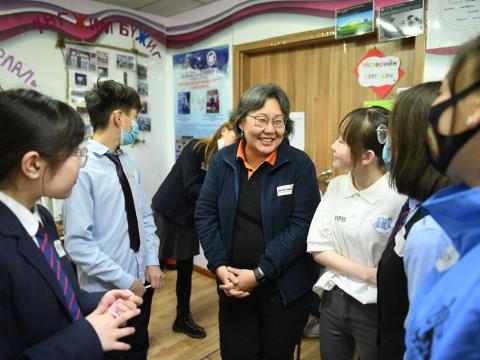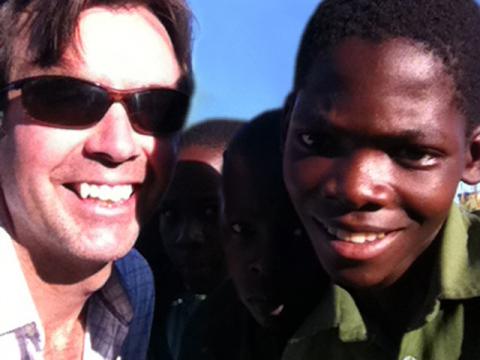
Leading by Example: Children’s Voice in Organisational Decision-Making
Humanitarian workers and international development practitioners know that in our line of work, there are no quick fixes to ending poverty. Sustainable transformation is dependent on the steadfast commitment of international and local actors to localisation - through the shifting of power to local actors and the sharing of capacity, expertise. One of the ways we embody these principles at World Vision is by listening to children’s voices and integrating meaningful child participation into the way that we work.
At World Vision, we believe that child participation is both an entitlement to all boys and girls, as well as an essential element of our child-focused agenda. Children have unique and essential contributions to make to decisions and processes that affect their lives. The recent 2023 Global Report on Child Participation in World Vision Decision-Making celebrates the different ways girls and boys across the world have been meaningfully involved in the decisions that World Vision makes in our efforts to improve child well-being. The report features how our Field Offices implement innovative ways of listening to children in stable, conflict, and humanitarian settings, including them in local and national decision-making spaces to ensure that World Vision’s programming is informed by children’s experiences, priorities, capacities, and needs.
Over the last four years, our staff has involved children more consistently in local community planning meetings, where decisions are made between World Vision and local stakeholders on programme goals and plans and ongoing adaptation. Building on this local engagement, our Field Office Senior Leadership Teams around the world meet regularly with children’s groups to incorporate their opinions into high-level strategy decisions. Last year, at least nine new offices established representative Children Advisory Group structures as an additional mechanism for listening to children and keeping themselves accountable to children’s suggestions.
The latest report features examples and learning from all of this, as well as innovative practices as Field Offices seek out the best ways to involve children as partners in various contexts. Children’s participation has had concrete impacts on World Vision decisions, and led to tangible benefits for children.
The global report contains many interesting and inspiring examples, including:
- Adapting programming to have a more intentional focus on adolescents in Zimbabwe;
- Integrating nutrition, health, and education programming with Child Friendly Spaces in South Sudan.
- In El Salvador, staff have increased economic livelihood programming for vulnerable children and cognitive stimulation activities for people with intellectual disabilities in response to children’s recommendations.
- In the West Bank, Palestinian children participate in a Sponsorship Child Council tasked with helping the office shape sponsorship activities and communications.
As John Teng, World Vision China’s National Director states, “Children are not passive spectators in the unfolding drama of life; they are the protagonists, the storytellers, and the heroes. It is their right to be heard, and we have an obligation to create spaces where their voices resonate, where their dreams ignite, and where their talents flourish.”
Listening to children, working alongside them, and integrating their perspectives into our own decision-making spaces is not simply another checkmark in our organizational to-do list. These simple actions signal something greater – that the voices of children are essential to our goals of improving child well-being, that we recognize the importance of sharing power with our programme participants and ultimately that boys and girls themselves are inherently valuable.
Bill Forbes is World Vision International’s Global Sector Lead, Child Protection & Participation and Tiffany Tao Joiner is World Vision International’s Senior Advisor, Child Participation & Capability.
